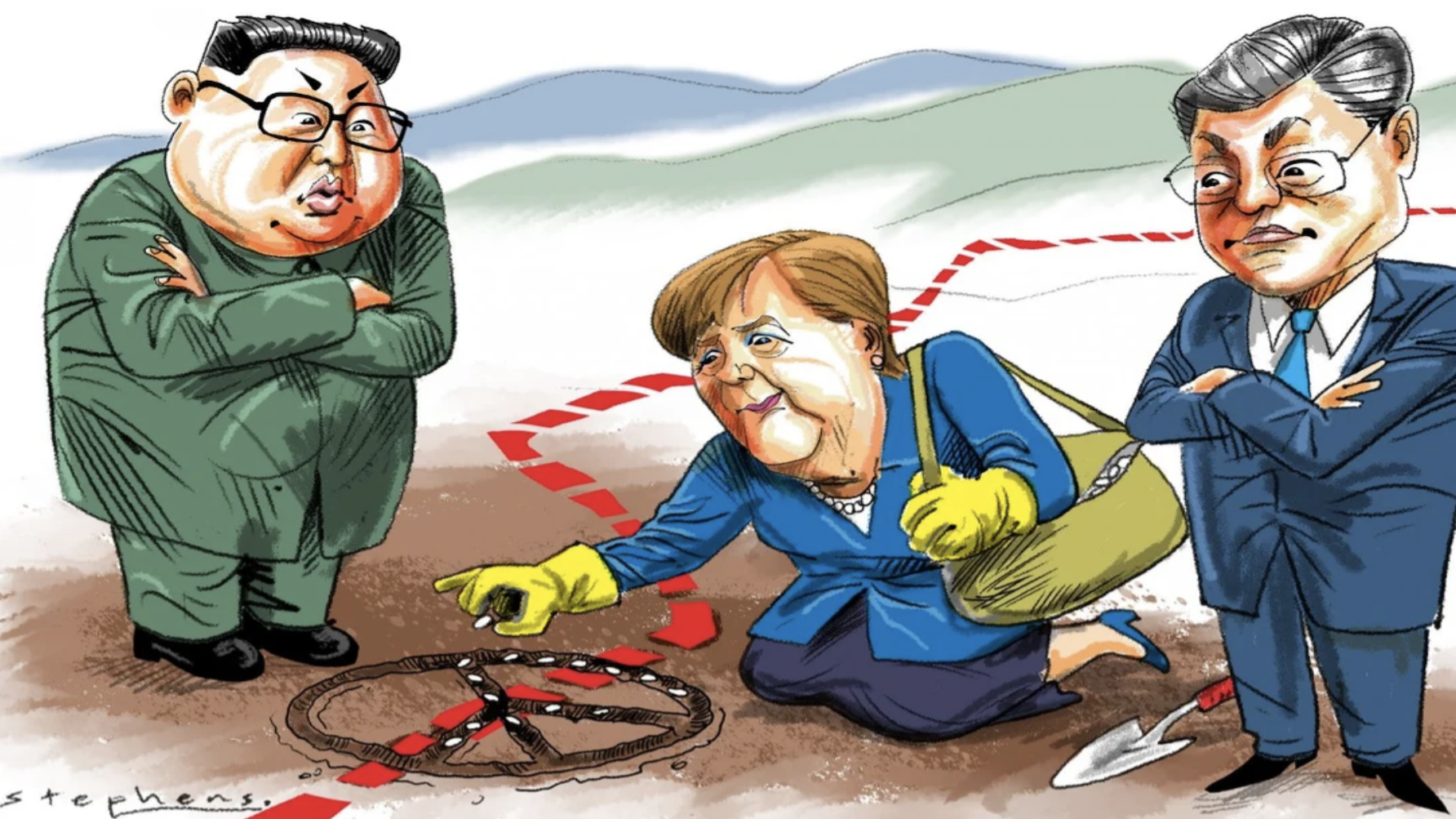TOM PLATE WRITES — Minari is both the name for a celery-like herbal plant and the title of a wonderful new Korean-American movie that is stealing people’s hearts and winning major recognition. The plant is also a symbolic plot point that is as rich in the movie as the real-life herb is tart in taste. And this will take us to a much different point of diplomacy.
Korea itself is quite the head-turner nowadays, with its oversexed K-pop, gaudy parade of TV romcoms and award-winning films. Just like the wholly Korean-made Parasite, which won the Golden Globe Best Foreign Film for 2019, Minari won the 2020 award.
It was a strong year for foreign-language entries, but Minari landed at the top of the heap not simply because of the seven-year-old who almost, though not quite, steals the show by showing us the realities of Asian immigration through a child’s eyes; but also because of the grandmother, portrayed by Youn Yuh-jung, who steals your heart and plants minari seeds that sprout into the film’s moral lesson.
Out of Asia as a whole, Japanese, Chinese and Indian artistic and entertainment exports over many decades have had incalculable impact. Many citizens of the world, especially Chinese, have come to respect Japan more because of its Kurosawas than its Koizumis.
Even China’s formidable leader Xi Jinping will struggle to conquer as many people’s minds, no matter how well-crafted his plenary speeches, as the likes of Wong Kar-wai, Ang Lee and John Woo will capture people’s imagination.
Though technically a Korean-American collaboration, Minari draws our attention to the tragic story of the Korean peninsula. South Korea, though a proud practising democracy, does not enjoy a big-nation role on the global stage, and geopolitically remains mired in political mud, in which not even the rugged minari could flourish. And, viewed by the outside world, nuclearised North Korea is something of a joke – and a bad one.
But the North Korean dilemma is not entirely its own doing. The US continues to apply brain dead economic sanctions. Its erroneous predications of North Korean regime collapse fuel poorly-thought-out policies from officials who all but gloat over the sad lives of the average North Korean writhing under their brutal economic sanctions.
Close neighbours are of little help. Little love travels across the sea between the Japanese archipelago and the Korean peninsula. And the Russian Federation – having signalled its resignation three decades ago as the mighty USSR – lets China take the lead on North Korea.
But China doesn’t want a leading role; it would prefer to stage-manage behind the scenes. It’s had more than its fill of Pyongyang and its pinball nuclear antics. With some percentage of North Korea’s 25 million people hungering for a healthier economic life, how many would spill over into China in the event of a regime collapse is the nightmare scenario for Beijing.
The Xi Jinping government might consider something diplomatically imaginative for the Korean peninsula headache, if only the US, retreating into the cold comfort of a new type of cold war, would itself get serious about its diplomacy and get off its flawed-democracy high-horse.
North Korea, under a big-power insurance policy, might throw its nuclear cards on the table if it were made an offer it couldn’t refuse, short of regime change. But if the new and promising Biden administration remains glued by domestic and congressional politics to the Manichean mentality of virtue versus evil, no one has any room for manoeuvre.
Is there no happy ending to come? Maybe not, but here’s one new idea. What the Korean peninsula diplomatic tundra needs to melt towards a gradual normalisation is a grandmother such as the one in the movie Minari. Yes – a grandmother figure who can walk into a fraught situation, speak truth to power (even ones with the mentality of a seven-year-old), and make the point that the (nuclear) fire next time might incinerate the whole Korean family.
So, for the dreadful Korean peninsula deadlock, would a new idea or two be such a bad idea? Four of the directly involved parties are nuclear powers, and the two that aren’t won’t remain non-nuclear forever if the political lockdown continues.
Norway offers a sensible proposal, to unclog the avenues to international humanitarian aid, as one way out of the dead end. And high-level dealing is not necessarily a waste of time, either. Former president Donald Trump was not wrong to take the face-to-face route; it’s just that he was simply not the right man for the job. But maybe “manning up” is not the best idea.
Imagine some sort of transcendent grandmother – an Angela Merkel, stepping down as Germany’s chancellor, and presumably willing to add to her legacy. If she can handle those feuding Germans so adroitly, why not feuding Koreans? Besides, who understands the difficulties of unification of opposite regimes (yet of the same ethnicity/nationality) better than Merkel?
Yes, an idea: the wily grandmother as mediator. Hey, it worked in Minari. Maybe we could use fewer youngsters who know everything, and fewer middle-aged officials who have tried virtually everything; and look to the “grandmas” who, despite sometimes annoyingly suggesting they know it all, actually do know the things we humans truly need knowing: love must flourish like the rugged minari in order to survive.
LMU Professor Tom Plate is the founder of Asia Media International and vice-president of the Pacific Century Institute. The original version of this column appeared earlier in the week in the South China Morning Post, to which Prof Plate is a regular op-ed contributor.

